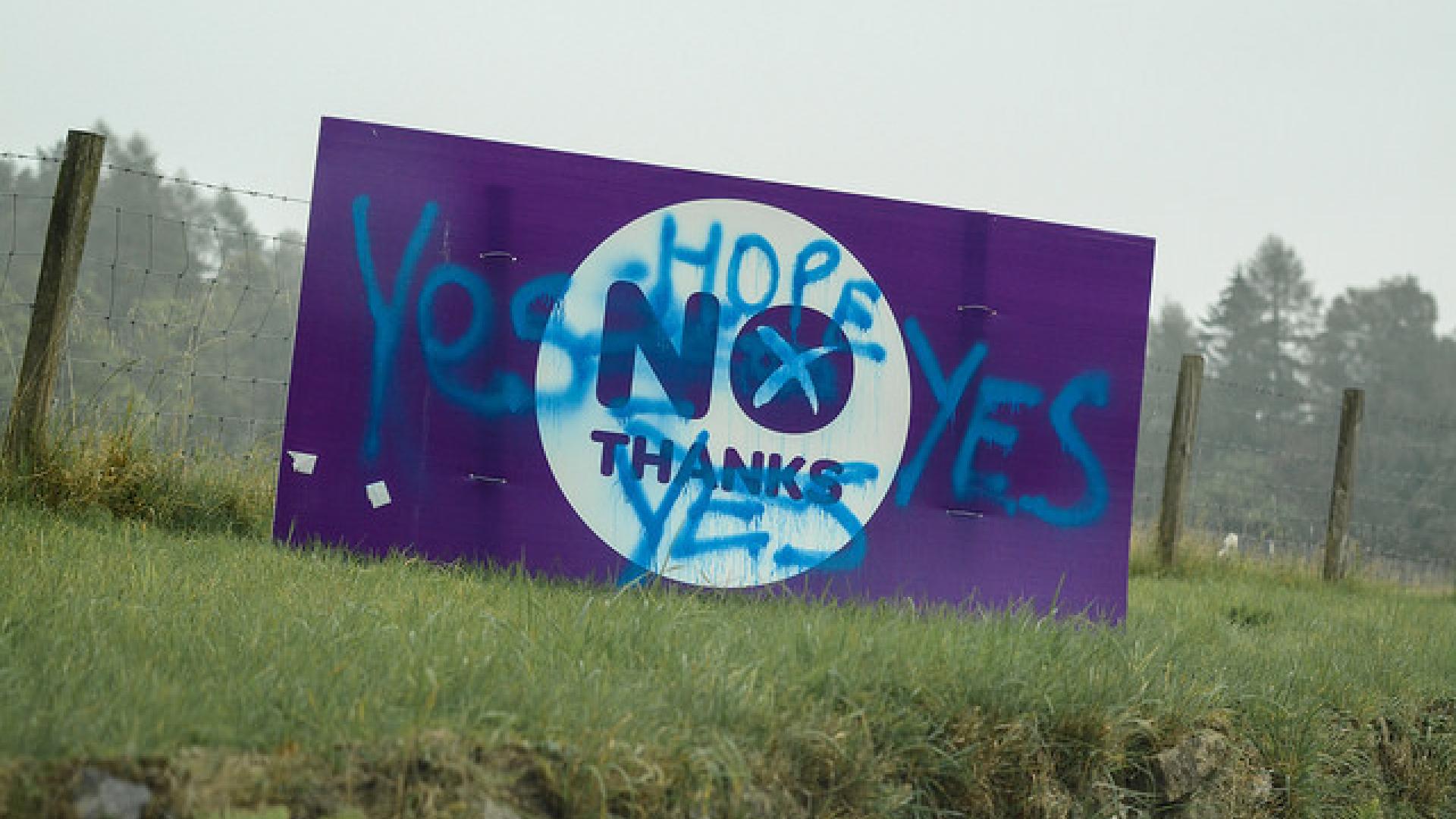As a Scot living in London, I largely watched the referendum debates from a distance and was amazed by what was happening, and is continuing to happen, among friends and family back home. Over the past two months, I’ve watched the posts on my Facebook newsfeed change. There are far fewer videos of cats and far more links to petitions and articles, with more of my friends writing their own opinion pieces. I’ve been fascinated by the breadth of individuals who have felt inspired to make a difference in their community, from donating blood for first time to debating the role of food banks in our society.
September’s referendum on Scottish Independence saw political engagement go off the charts, with 84.5% of the electorate turning out to vote. The 2010 general election witnessed a much lower turnout of 63.8% in Scotland and 65.1% across the UK as a whole. This has left politicians and political parties with the challenge of how to replicate this high turnout and engagement in future elections and referendums. I think charities should also be considering how this period of heightened civic and political engagement can have a positive impact on the charity sector in Scotland and across the UK.
So why is political engagement useful for charities? In the Charity Awareness Monitor, nfpSynergy’s research with the general public, we see that those who are politically interested are significantly more likely to become active followers of charities and their campaigns.
For example, of those who had written a letter to their MP regarding a charity campaign in the past 12 months, 89% said they were ‘very’ or ‘fairly interested’ in politics, compared to 11% who were ‘somewhat interested’. 76% of those who had volunteered with a charity in the past 12 months were ‘very’ or ‘fairly interested’ in politics, compared with just 24% who were either ‘somewhat interested’ or ‘not interested’.
If the Scottish public remain engaged with political affairs, it’s likely to have knock-on effects for engagement with charities. Not only is it in charities’ interests to keep this momentum going, but the charity sector in Scotland is already well placed to keep a sense of civic and political engagement alive. They are less affected by the challenge facing new social movements forming in Scotland; to change the rhetoric and debate from one of independence to one of social change and equality in order to productively engage everyone, regardless of how they voted.
Charities almost unanimously made the call to remain neutral during the independence debates, but still held discussions and debates with beneficiaries and supporters to explore what a better Scotland would look like. The charity sector could provide the ideal forum to keep these debates alive in a sensitive and neutral way.
Not only is it valuable for charities to engage the public through their campaigning, I think it’s also time to consider the potential positive effects on volunteering. ‘Volunteering: Scotland’s changing paradigm’, a 2012 research report, found that three in 10 people provide regular unpaid help to organisations or groups in Scotland.
While this figure has remained static over the last five years, the demand on public and health services to be delivered by the voluntary sector in Scotland continues to grow. Although it is great that the sector has been identified by the Scottish Government as a key partner in the delivery of health and social care, there is a growing need for charities to meet this demand through more volunteers.
This stable trend in volunteering has been seen across the UK. This was shown by our research in our volunteering report, The New Alchemy, where 26% of the UK public said they had given their time in the last three months. Our research also shows that levels of volunteering are slightly lower in Scotland (22%). As volunteering levels have stayed stable for so long, we need new approaches to meet the demand for more volunteers. This potential period of heightened engagement with charities could be the answer.
I’m suggesting that Scotland’s engagement in politics can lead to more people campaigning for charities and more people volunteering. So how should charities keep individuals politically engaged?
Social media is continuing to be used heavily as a forum for people to share what their ideal Scotland looks like and it will be an important tool for interacting with these audiences. It will also be important in reaching out to 16 and 17 year olds who have voted for the first time and are hungry to vote and engage in future elections. With devolution discussions continuing into 2015, Scotland’s political system is still changing and I think charities still have a role to facilitate debates and spark a continuing sense of civic engagement.
The challenge for charities may be how to justify extra resources for the activities that may sit outside their traditional remit. The past year has been exhausting for charities working in Scotland, and many are only just starting to feel the relief of returning to ‘business as usual’.
Rather than purely a resourcing issue, I propose that the main challenge is a shift in attitudes. The whole Scottish charity sector needs to consider its responsibility in this time of change and the opportunities it offers.
Did we Edinburgh right direction? Or is this border-ing on wrong? Leave us a comment below.

